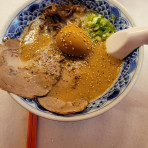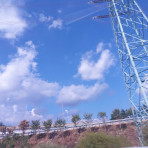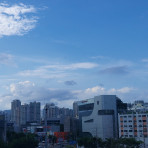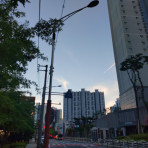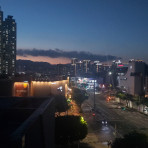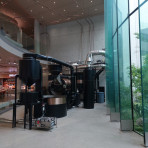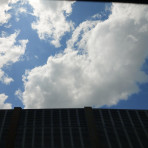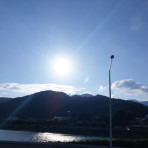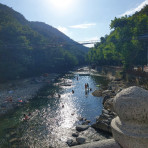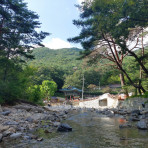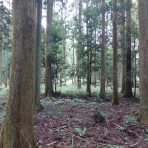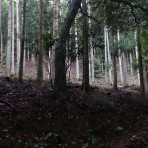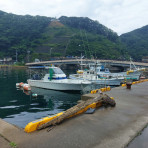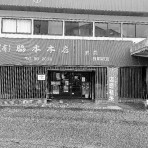BASF’s exit from Xinjiang ventures may prompt more to follow
본문
Tue, 13 Feb 2024 04:30:00 -0500

UPDATED at 2:05 P.M. ET on 02-13-2024
German chemical giant BASF is pulling out of its joint ventures in China’s Xinjiang with renewed urgency, amid intensified pressure to exit the region where Western governments have accused Beijing of human rights abuses against the Uyghur ethnic minority.
BASF announced last Friday that it would “accelerate the ongoing process” to divest its shares in two joint ventures – BASF Markor Chemical Manufacturing and Markor Meiou Chemical in Xinjiang’s Korla region – which began at the end of last year. German media had earlier alleged its local partner was involved in human rights abuses in Xinjiang.
“This is against our values at BASF,” said company spokesperson Daniela Rechenberger on Tuesday. “And that's why we now accelerated process to divest these business. But it's not that our employees in any form have been involved. That's really important."
BASF’s exit could trigger other Western companies to follow, including auto giant Volkswagen that has a plant in the capital city Urumqi, according to lawmakers and academics, who called the chemical company’s move belated and insincere.
A BASF statement said the decision was based on commercial considerations. However, it acknowledged that the local situation in Xinjiang is also part of BASF's overall assessment of the Korla joint ventures.
BASF denied published reports that employees of the joint ventures were involved in the Chinese communist authorities’ suppression of Uyghurs, and said the claims related to its joint venture partner Markor, in which it has no stake.
“Regular due diligence measures including internal and external audits have not found any evidence of human rights violations in the two joint ventures. Nonetheless, recently published reports related to the joint venture partner contain serious allegations that indicate activities inconsistent with BASF’s values,” the statement said.
Earlier, a company spokesman said BASF could not predict when the sale would be completed, but it would not change the company's China strategy or other businesses in the country.
Money over morals
The German newspaper Handelsblatt published a report last November exposing BASF-Markor’s shareholder, Zhongtai Group in Xinjiang and its subsidiary Zhongtai Chemical, for allegedly using Uyghur slave labor. The United States government, which has blocked imports from Xinjiang unless proven they were not made with forced labor, has included Zhongtai Group and Zhongtai Chemical on a sanctions list since last summer.
Zhu Rui, a Chinese lecturer at a German university, believes that BASF’s belated decision was made under growing pressure from international public opinion as German companies who look to profit from Chinese investments are also governed by laws and human rights standards at home.
“The BASF incident is very much like a live version of Huntington's 'Clash of Civilizations,'” Zhu said, referring to Samuel P. Huntington’s theory that the primary cause of conflict in the post-Cold War world will be cultural, rather than ideological or economic.
While the “Western civilized world” requires multinational companies to respect human rights values, BASF not only went to China, a country known for its poor human rights standards, but to Xinjiang, a Chinese region that operates concentration camps for Uyghur people, he added.
“This all reflects the dilemma it faces between adhering to Western values and choosing the Chinese market,” Zhu told Radio Free Asia.
“BASF's production capacity in China roughly accounts for half of its global output. In retreating from Xinjiang, BASF says it hopes to retain its operations in China. But, being between Western values and giving China face, it can’t please either side.”
Adrian Zenz, director of China Studies at the Victims of Communism Memorial Foundation in Washington, agreed that pressure forced BASF's hand.
“It's such a late decision, and and basically it's based on pressure, not on an understanding that it's irresponsible to remain in the region," he told RFA on Tuesday. “And it's unfortunate that companies have to be subjected to such pressure to arrive at those decisions.”
Who’s next?
On Feb. 5, 30 members of the Inter-Parliamentary Alliance on China (IPAC) – an international cross-party group of legislators – wrote to BASF CEO Martin Brudermüller, expressing deep concern about the “shocking degree” to which BASF appeared to be implicated “in gross abuses of the Uyghur and other predominantly Turkic minorities,” in Xinjiang, and demanding that BASF withdraw from the region.
One of the signatories, the deputy chairman of Germany’s Free Democratic Party Gyde Jensen, told Handelsblatt that BASF's decision to divest from the controversial Xinjiang joint venture factory was belated, and the reasons cited were insufficient. She also urged Volkswagen to seriously consider the reputational risks of continuing to build factories in Xinjiang.
German lawmaker Michael Brand agreed that BASF's move came too late, made as the company ran out of options.
"If Mr. Brudermüller thinks he can now avoid joint responsibility for serious human rights violations while in China, he and BASF may be wrong, and the German law will not forget serious human rights violations," Brand said.
The polytetrahydrofuran production unit jointly established by BASF and Xinjiang Markor Chemical Industry officially went into operation in July 2016. (BASF China official website)
Ilshat Hesen Kokbore, a U.S.-based Uyghur scholar and vice chairman of the World Uyghur Congress, argued that BASF does not realize it has become an accomplice of the Chinese Communist Party’s genocide against the Uyghurs.
“Regardless of whether you participated or not, you have factories there, and the companies you invest in are tools of the Chinese totalitarian government. You are an accomplice,” he said.
Others believe BASF's withdrawal from its Xinjiang joint ventures will double down the pressure on Volkswagen.
Zenz, a scholar on Xinjiang internment camps, told RFA earlier the BASF divestment sends an important signal – Volkswagen, the only German company with a factory there, has no more excuses not to exit from Xinjiang.
An external audit commissioned by Volkswagen last year carried out by Löning, a German consultancy accompanied by an unnamed Shenzhen-based law firm, found no indication of forced labor at the plant. But staff at the consulting firm and outside experts have expressed doubts about the credibility of the investigation.
Company representatives once said privately that considering the local situation in Xinjiang, no company would make this site selection decision again.
Translated and additional reporting by RFA staff and Jilil Kashgary for RFA Uyghur. Edited by Mike Firn.
The story was updated to include comments from Daniela Rechenberger and Adrian Zenz.

UPDATED at 2:05 P.M. ET on 02-13-2024
German chemical giant BASF is pulling out of its joint ventures in China’s Xinjiang with renewed urgency, amid intensified pressure to exit the region where Western governments have accused Beijing of human rights abuses against the Uyghur ethnic minority.
BASF announced last Friday that it would “accelerate the ongoing process” to divest its shares in two joint ventures – BASF Markor Chemical Manufacturing and Markor Meiou Chemical in Xinjiang’s Korla region – which began at the end of last year. German media had earlier alleged its local partner was involved in human rights abuses in Xinjiang.
“This is against our values at BASF,” said company spokesperson Daniela Rechenberger on Tuesday. “And that's why we now accelerated process to divest these business. But it's not that our employees in any form have been involved. That's really important."
BASF’s exit could trigger other Western companies to follow, including auto giant Volkswagen that has a plant in the capital city Urumqi, according to lawmakers and academics, who called the chemical company’s move belated and insincere.
A BASF statement said the decision was based on commercial considerations. However, it acknowledged that the local situation in Xinjiang is also part of BASF's overall assessment of the Korla joint ventures.
BASF denied published reports that employees of the joint ventures were involved in the Chinese communist authorities’ suppression of Uyghurs, and said the claims related to its joint venture partner Markor, in which it has no stake.
“Regular due diligence measures including internal and external audits have not found any evidence of human rights violations in the two joint ventures. Nonetheless, recently published reports related to the joint venture partner contain serious allegations that indicate activities inconsistent with BASF’s values,” the statement said.
Earlier, a company spokesman said BASF could not predict when the sale would be completed, but it would not change the company's China strategy or other businesses in the country.
Money over morals
The German newspaper Handelsblatt published a report last November exposing BASF-Markor’s shareholder, Zhongtai Group in Xinjiang and its subsidiary Zhongtai Chemical, for allegedly using Uyghur slave labor. The United States government, which has blocked imports from Xinjiang unless proven they were not made with forced labor, has included Zhongtai Group and Zhongtai Chemical on a sanctions list since last summer.
Zhu Rui, a Chinese lecturer at a German university, believes that BASF’s belated decision was made under growing pressure from international public opinion as German companies who look to profit from Chinese investments are also governed by laws and human rights standards at home.
“The BASF incident is very much like a live version of Huntington's 'Clash of Civilizations,'” Zhu said, referring to Samuel P. Huntington’s theory that the primary cause of conflict in the post-Cold War world will be cultural, rather than ideological or economic.
While the “Western civilized world” requires multinational companies to respect human rights values, BASF not only went to China, a country known for its poor human rights standards, but to Xinjiang, a Chinese region that operates concentration camps for Uyghur people, he added.
“This all reflects the dilemma it faces between adhering to Western values and choosing the Chinese market,” Zhu told Radio Free Asia.
“BASF's production capacity in China roughly accounts for half of its global output. In retreating from Xinjiang, BASF says it hopes to retain its operations in China. But, being between Western values and giving China face, it can’t please either side.”
Adrian Zenz, director of China Studies at the Victims of Communism Memorial Foundation in Washington, agreed that pressure forced BASF's hand.
“It's such a late decision, and and basically it's based on pressure, not on an understanding that it's irresponsible to remain in the region," he told RFA on Tuesday. “And it's unfortunate that companies have to be subjected to such pressure to arrive at those decisions.”
Who’s next?
On Feb. 5, 30 members of the Inter-Parliamentary Alliance on China (IPAC) – an international cross-party group of legislators – wrote to BASF CEO Martin Brudermüller, expressing deep concern about the “shocking degree” to which BASF appeared to be implicated “in gross abuses of the Uyghur and other predominantly Turkic minorities,” in Xinjiang, and demanding that BASF withdraw from the region.
One of the signatories, the deputy chairman of Germany’s Free Democratic Party Gyde Jensen, told Handelsblatt that BASF's decision to divest from the controversial Xinjiang joint venture factory was belated, and the reasons cited were insufficient. She also urged Volkswagen to seriously consider the reputational risks of continuing to build factories in Xinjiang.
German lawmaker Michael Brand agreed that BASF's move came too late, made as the company ran out of options.
"If Mr. Brudermüller thinks he can now avoid joint responsibility for serious human rights violations while in China, he and BASF may be wrong, and the German law will not forget serious human rights violations," Brand said.
The polytetrahydrofuran production unit jointly established by BASF and Xinjiang Markor Chemical Industry officially went into operation in July 2016. (BASF China official website)
Ilshat Hesen Kokbore, a U.S.-based Uyghur scholar and vice chairman of the World Uyghur Congress, argued that BASF does not realize it has become an accomplice of the Chinese Communist Party’s genocide against the Uyghurs.
“Regardless of whether you participated or not, you have factories there, and the companies you invest in are tools of the Chinese totalitarian government. You are an accomplice,” he said.
Others believe BASF's withdrawal from its Xinjiang joint ventures will double down the pressure on Volkswagen.
Zenz, a scholar on Xinjiang internment camps, told RFA earlier the BASF divestment sends an important signal – Volkswagen, the only German company with a factory there, has no more excuses not to exit from Xinjiang.
An external audit commissioned by Volkswagen last year carried out by Löning, a German consultancy accompanied by an unnamed Shenzhen-based law firm, found no indication of forced labor at the plant. But staff at the consulting firm and outside experts have expressed doubts about the credibility of the investigation.
Company representatives once said privately that considering the local situation in Xinjiang, no company would make this site selection decision again.
Translated and additional reporting by RFA staff and Jilil Kashgary for RFA Uyghur. Edited by Mike Firn.
The story was updated to include comments from Daniela Rechenberger and Adrian Zenz.
좋아요12
이 글을 좋아요하셨습니다
관련링크
등록된 댓글이 없습니다.

